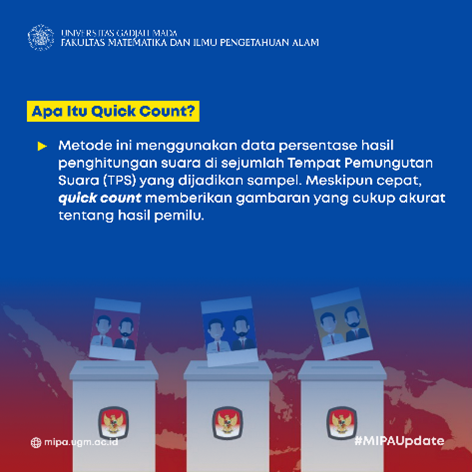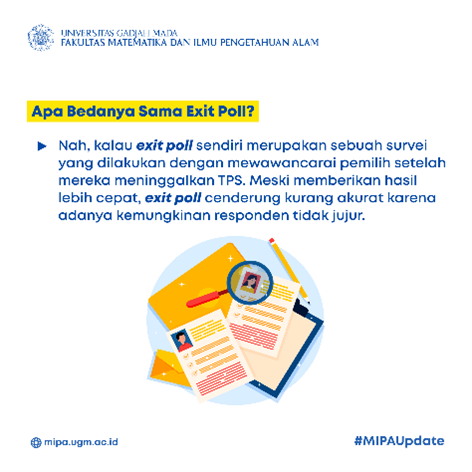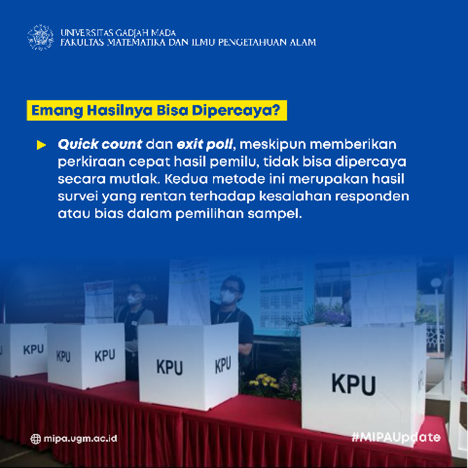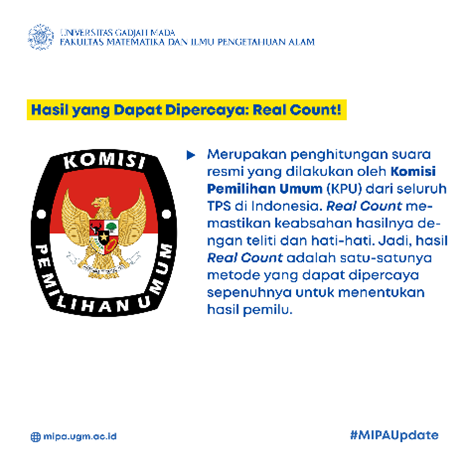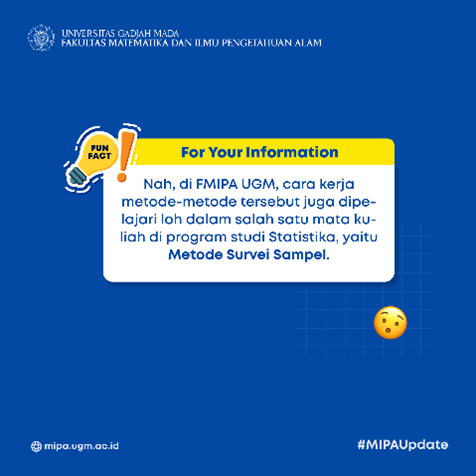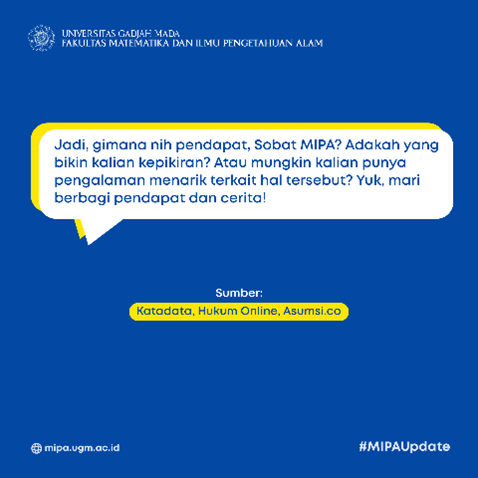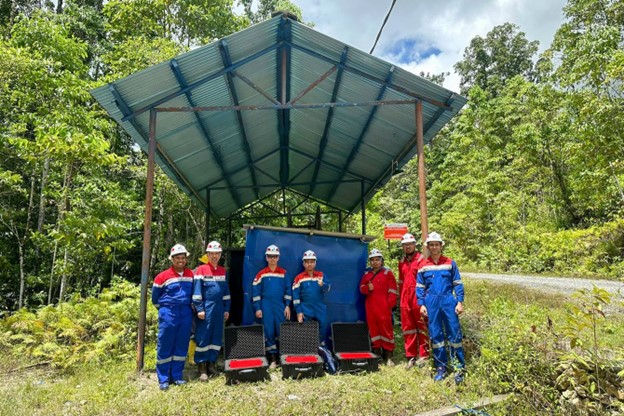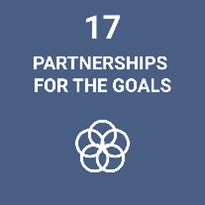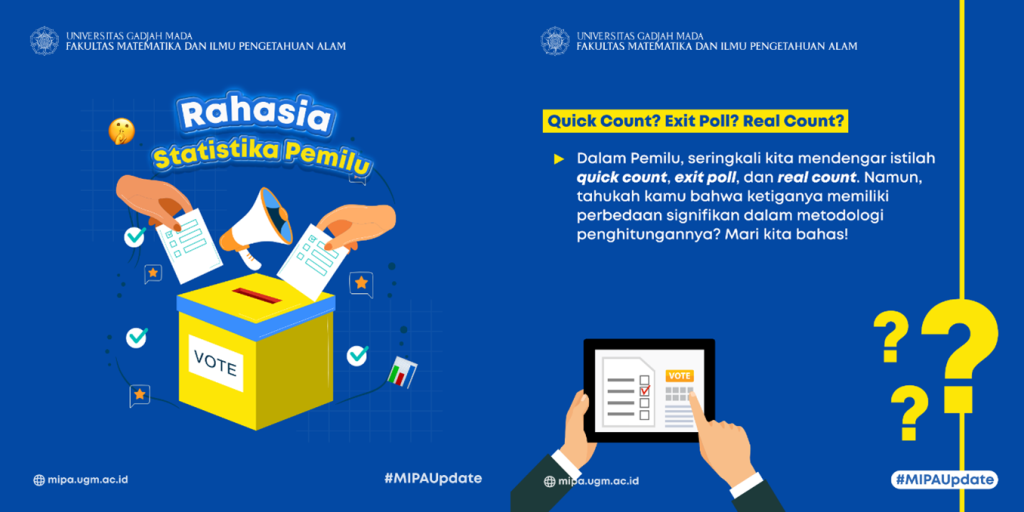
Unlocking the Election Statistics Secrets: FMIPA UGM Educates the Public on Electoral Vote Counting Methods in Indonesia
(Education Content on Electoral Vote Counting Methods)
2024 is a pivotal year for Indonesia’s Democracy. On Feb 14th, 2024, Indonesian citizens celebrated democracy through regional and national elections. Post-election, various vote-counting methods emerged, such as quick count, exit poll, and real count. Despite their prevalence, these methods aren’t fully understood by the public. Consequently, misinformation spreads, leading many to believe the results represent all voters’ voices. In reference to that issues, the education provided also serves as an implementation of Sustainable Development Goal (SDG) pillar 16 (Peace, Justice, and Strong Institutions) with a focus on resolving public information disputes through the media, as well as pillar 4 (Quality Education) with a focus on accessibility and technology and information literacy
(Education Content on Electoral Vote Counting Methods)
Through the ‘Election Statistics Secrets!’ content posted on Instagram @fmipaugm, FMIPA UGM educates the public on the three vote counting methods: quick count, exit poll, and real count. Quick count swiftly generates results by sampling vote percentages from select polling stations. Exit poll involves post-election interviews with respondents, but its accuracy is questionable due to potential dishonesty. The real count, officially released by the Electoral Commission, tallies all gathered votes.
(Education Content on Electoral Vote Counting Methods)
To quell post-election chaos, all three methods are clarified. Each method’s accuracy varies, urging the public to focus on quick count alone. However, both quick count and exit poll are prone to data errors as they don’t encompass all votes. To bolster credibility, FMIPA UGM includes a study on Sample Survey Methods, a course taught in UGM’s Statistics program. This aims to encourage wiser information consumption regarding election results.
Keywords: electoral vote, statistics, quick count, exit poll, real count
Author: Febriska Noor Fitriana (FMIPA UGM Public Relations)
Reference: Fabima Fadhlin Minallah Zidta (FMIPA UGM Social Media Team, UGM Statistics Undergraduate Student)
Illustrator: Alvin Nur Sa’ban Zidta (FMIPA UGM Social Media Team)
